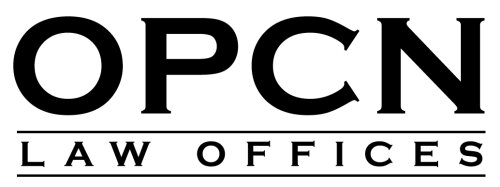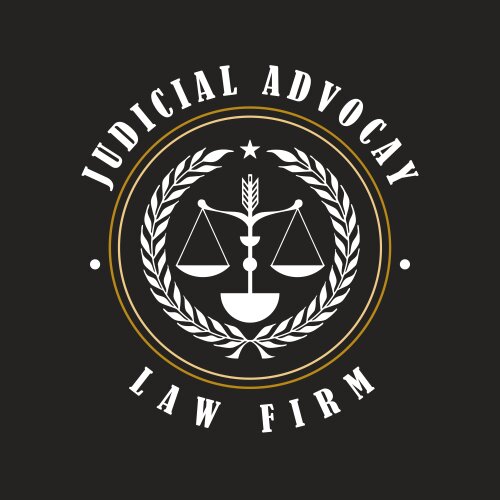Best Criminal Litigation Lawyers in Philippines
Share your needs with us, get contacted by law firms.
Free. Takes 2 min.
Or refine your search by selecting a city:
List of the best lawyers in Philippines

Dagsaan Monterde Castillo Law and Notary Public (DMC LAW)
15 minutes Free ConsultationPhilippines Criminal Litigation Legal Questions answered by Lawyers
Browse our 8 legal questions about Criminal Litigation in Philippines and read the lawyer answers, or ask your own questions for free.
- If the girl friend of the offender is hinding him him to the victim is there a criminal liability?
- The offender has committed an estafa, then his girlfriend is hiding or giving other directions
-
Lawyer answer by Romano Legal Services
Yes, the girlfriend can be held liable as an accessory to the crime committed by her boyfriend.
Read full answer - Consensual rape
- My nephew is 19 yrs old and his girlfriend is 16 yrs old. Her guardian said that she caught the two in her room, with my nephew's pants unzipped but no discreption if there was an actual sexual act. She threatened to file a rape case against my nephew. The... Read more →
-
Lawyer answer by Romano Legal Services
If the only evidence of the girl's guardian is your nephew's unzipped pants, then there is a very high chance your nephew will be acquitted. I say 'chance' and not 100% certainty of acquittal because the guardian may have other...
Read full answer - JUSTICE
- Can I file a case to the driver who cause the death of my sister? Even though the company he worked, will shoulder all the expenses inside the hospital and the burial? Thank You and I hope, I can get my answer.God Bless
-
Lawyer answer by ARREOLA LAW OFFICE
Yes. You can still file a case even if there is a compromise agreement relative to the civil aspect of the case.
Read full answer
About Criminal Litigation Law in Philippines
Criminal litigation in the Philippines involves the process of taking legal action in court against individuals or entities accused of violating criminal laws. The procedures are governed by the Revised Penal Code as well as special penal laws, and are carried out to determine the guilt or innocence of the accused. Criminal litigation can involve various stages including investigation, prosecution, defense, trial, and sentencing. Key institutions in this process include the police, the prosecution service, defense counsel, and the judiciary.
Why You May Need a Lawyer
There are various situations where you may need a lawyer for criminal litigation in the Philippines. If you are accused of a crime, it is vital to have legal representation to ensure your rights are protected and to navigate the complicated legal system. Additionally, victims of crime might seek legal assistance to ensure that justice is served. Lawyers can also provide advice on compliance with laws, representation in court, negotiation of plea bargains, and assistance with appeals.
Local Laws Overview
The Revised Penal Code is the fundamental law in the Philippines for criminal offenses. It classifies crimes into two main categories: felonies, which are crimes punishable under the code, and special laws which cover other offenses. Criminal cases are prosecuted by the state, typically through the office of the public prosecutor. The judicial system is adversarial, meaning both parties present their cases to an impartial judge or jury. Sentencing can vary from fines to imprisonment, depending on the severity of the crime.
Frequently Asked Questions
1. What is the first step if I am accused of a crime?
If accused of a crime, it is crucial to remain silent and request a lawyer before making any statements to law enforcement. This helps in protecting your rights and ensuring fair legal representation.
2. How long does a criminal case take in the Philippines?
The duration of a criminal case can vary greatly depending on the complexity of the case, the availability of evidence, and the court's schedule. Some cases might conclude in a few months, while others could take years.
3. Can I represent myself in a criminal trial?
While legally you can represent yourself, it is not advisable due to the complexities of criminal law and the high stakes involved. Professional legal counsel is recommended.
4. What are my rights if I am arrested?
Upon arrest, you have the right to remain silent, the right to inform a family member, and the right to a legal counsel of your choice. The Miranda Rights must also be read to you.
5. What should I do if I cannot afford a lawyer?
If you cannot afford a lawyer, the court can provide you with a public defender to represent you at no cost.
6. How do plea bargains work?
Plea bargains involve negotiation between the defendant and the prosecutor, where the defendant agrees to plead guilty in exchange for a lesser charge or a reduced sentence, subject to court approval.
7. Can I appeal my conviction?
You can appeal a conviction if there are sufficient grounds such as legal errors or newly discovered evidence that could potentially overturn the conviction.
8. What are bailable and non-bailable offenses?
Bailable offenses allow the accused to post bail and gain temporary freedom while awaiting trial. Non-bailable offenses are serious crimes for which the law does not allow bail.
9. How are juvenile offenses handled?
Juvenile offenses are typically handled under the Juvenile Justice and Welfare Act, which promotes rehabilitation and prioritizes restorative justice.
10. What role does the Barangay play in criminal cases?
The Barangay, or local village government, may mediate minor disputes and offenses, but serious criminal cases are escalated to higher authorities.
Additional Resources
For further assistance, consider reaching out to the Public Attorney's Office (PAO), the Department of Justice, or the Integrated Bar of the Philippines. Law schools with legal aid clinics can also provide resources and basic assistance.
Next Steps
If you are in need of legal assistance in criminal litigation, the first step is to contact a lawyer who specializes in criminal law. You can seek referrals from trusted friends, check with the Integrated Bar of the Philippines, or contact legal aid organizations for guidance. Ensure that you discuss your case in detail and understand the legal fees and processes involved. Document all relevant information and maintain open communication with your legal representative.
Lawzana helps you find the best lawyers and law firms in Philippines through a curated and pre-screened list of qualified legal professionals. Our platform offers rankings and detailed profiles of attorneys and law firms, allowing you to compare based on practice areas, including Criminal Litigation, experience, and client feedback.
Each profile includes a description of the firm's areas of practice, client reviews, team members and partners, year of establishment, spoken languages, office locations, contact information, social media presence, and any published articles or resources. Most firms on our platform speak English and are experienced in both local and international legal matters.
Get a quote from top-rated law firms in Philippines — quickly, securely, and without unnecessary hassle.
Disclaimer:
The information provided on this page is for general informational purposes only and does not constitute legal advice. While we strive to ensure the accuracy and relevance of the content, legal information may change over time, and interpretations of the law can vary. You should always consult with a qualified legal professional for advice specific to your situation.
We disclaim all liability for actions taken or not taken based on the content of this page. If you believe any information is incorrect or outdated, please contact us, and we will review and update it where appropriate.
Browse criminal litigation law firms by city in Philippines
Refine your search by selecting a city.
















